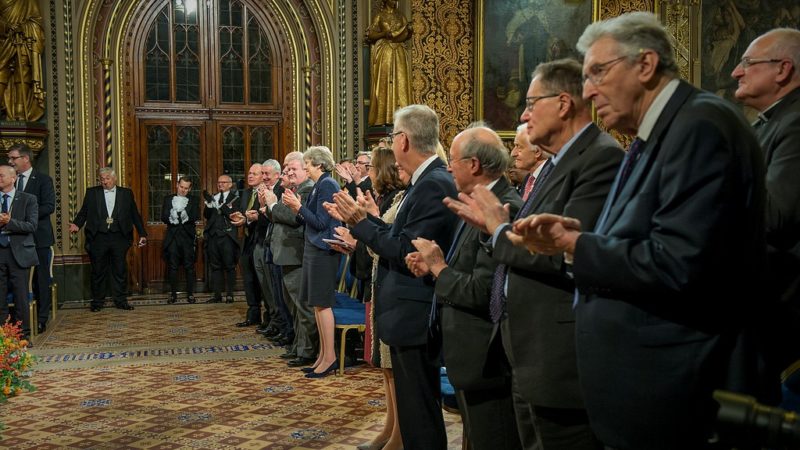Despite pledges to change, our parties are still failing to represent modern Britain.

There’s an Akan proverb that “One head does not hold council”. No one group or organisation can claim to be an expert on all things. In healthcare, multidisciplinary teams work together to support those with complex care needs. In the criminal justice system, jury diversity allows for more consistent decision making.
Expertise and diversity are mutually beneficial: when groups are diverse they are more likely to have a wide range of skills, insight and knowledge to adequately tackle a given problem.
Why then, is it that British political parties haven’t come to this conclusion sooner and increased efforts to ensure there is meaningful diversity within their membership?
The recent finding by Left Foot Forward that Labour have selected just six BAME candidates for target seats comes less than a year after the party announced plans to radically diversify itself to give minority ethnic councillors reserved seats in local elections.
And it highlights the need for legislation that enforces all-BAME shortlists just as All-Women Shortlists (AWS) do for women.
The long and short of it is, more affirmative action is desperately needed in UK politics. With the Tories playing the politics of race to perfection, ethnic minorities, who already cannot sway a general election, cannot also afford to continue to be under-represented and under-served.
Ethnic minority communities deserve to have leaders who they can relate to, who can understand their plight and will seek to address the hardest hitting issues facing BAME communities with a genuine interest.
Through the Sex Discrimination (Election Candidates) Act 2002 and the Equality Act 2010, All-Women Shortlists have successfully redressed the imbalance of female representation in Parliament. After Labour and the Liberal Democrats launched their first all-women shortlists in 1997, we have seen a more than 20% rise in female representation in the Commons. A similar feat could be achieved and bias could be eliminated from the selection process of councillors and MPs by using all-BAME shortlists.
We need a bold and positive way to increase the presence of BAME candidates in areas with a high BAME presence, where there is often a “worrying picture of race inequality” in areas of employment, education, crime, living standards and healthcare.
These calls will of course be met with cries of ‘tokenism’. But all-BAME shortlists would actually help spot the high-quality BAME talent out there that is so often overlooked. As Simon Woolley, director of Operation Black Vote said: “Exceptional BME individuals can’t get their foot in the door”.
All-BAME shortlists would trigger the end to the “chronic under-representation of Britain’s BAME communities”. At present, 8% of Members of the Commons (ad 6% of Lords) are from an ethnic minority background –compared to around 14% of UK population.
But there are significant regional variations. In London, for example, the British African/Caribbean population is 13.3% – but a mere 5.3% of the capital’s MPs are of Afro-Caribbean descent. Similarly, there are about 10.5% British Asian MPs in London despite members of this group making up 18.5% of the city’s population. Nationally, those from BAME backgrounds make up just four percent of local councillors.
Representation matters. It matters that the electorate vote for individuals who fully understand their local communities. As a result of the misrepresentation in Parliament, and with white men massively overrepresented, those chosen to represent the complex needs of an even more complex society are not reflective of that society.
It’s time for the promises of action – not least in Labour – to be respected. Labour’s recent Democracy Review said:
“We have had repeated requests that we recommend BAME only shortlists…This is currently not possible in law as the Equality Act specifically only allows provision for all women shortlists and not for other “protected characteristics.”
If that’s true, it’s time to change the law.
All-BAME shortlists shouldn’t stand on their own: there should be grants to make achieving a political career more accessible, investment in efforts to tackle unconscious bias, and increased transparency in the parties decision-making processes. A woefully low proportion of powerful BAME politicians is the leading reason why the UK cannot yet call itself a truly multicultural, progressive and modern society.
We have waited too long for voluntary action. Now it’s time to adopt a tried and tested means of redressing inequality.
Jacqueline Courtenay is a London-based writer. Follow her on Twitter.
Left Foot Forward doesn't have the backing of big business or billionaires. We rely on the kind and generous support of ordinary people like you.
You can support hard-hitting journalism that holds the right to account, provides a forum for debate among progressives, and covers the stories the rest of the media ignore. Donate today.



